
Easter-related video: I Bet You Didn´t Know� EASTER TRADITIONS
Sorry for the late upload, but in my country we are having Easter on April, 12th this year)))
This worksheet is based on a very nice Easter-related video by History.com. The students are supposed to watch the video about Easter and do TRUE/FALSE exercise. Keys and transcript are included! Video is available at: https://vimeo.com/62 961038 and htt...
Level: intermediate
Age: 11-100
Type: worksheet

Find the mistakes 1
The students have been loving these "find the mistake" activities and I think you will find them very useful as a warmer or as an opportunity to quiz the students on their grammar knowledge.
Each sentence has one mistake.
Give the students 20 minutes (depending on level) then underline the mistakes (OHP), for those that haven�t found them ...
Level: intermediate
Age: 12-17
Type: worksheet

reading comprehension-travel ing at beaches or mountains
it�s a contrast and comparison essay with its exc
Level: intermediate
Age: 13-17
Type: reading

Test - My Indian Holiday Experience
this is an original text I created from the various blogs I gathered information from. It was for the unit - My favourite destination, and I think it came out ok.
Level: intermediate
Age: 12-17
Type: worksheet

CLONING-REVIVING ENDANGERED OR EXTINCT SPECIES
This is a 2-page worksheet. Focus on vocabulary, word formation, rephrasing and Writing a Narrative. Key is provided. Hope it may be useful to you :)
Level: advanced
Age: 16-100
Type: worksheet

Writing Informal Emails or Letters
This printable can be used to teach and/or revise informal letter writing.
Level: intermediate
Age: 11-100
Type: worksheet

Much, many, little, few, a lot, plenty (2 pages) with theory and different ex-s
This worksheet contains two parts; theory and practice. The theory is pretty simple with good examples and it was taken from the well-known grammar book by Murphy. The practice consists of four ex-s of different levels of difficulty. I hope your Ss will enjoy it))
Level: intermediate
Age: 10-17
Type: worksheet

say versus tell
worksheet to practise the difference between say and tell.
Level: elementary
Age: 10-17
Type: worksheet

GERUND or INFINITIVE
Some information and practice on GERUNDS + INFINITIVES for upper-intermediate students. Answer key is included.
Level: intermediate
Age: 12-100
Type: worksheet

to be or to have - a two page speaking & writing worksheet
A 2-page worksheet with age, nationality, occupation, family and hair colour details of 10 people. Students read about them then gap-fill pg 2 with pos/neg of be/have got. Then they write more sentences about the people. Good for basic grammar practice, descriptions, conversation, writing. Worked well for me hope it does for you too.
Level: elementary
Age: 5-17
Type: worksheet

Beach holiday or skiing resort?
Scenes from the beach and from the ski slope, with some prompts for discussion and some tasks. Hope you can use it.
Level: advanced
Age: 11-100
Type: worksheet

Present Perfect or Past tense?
Students are led to infer the rules of the use and form of the Present Perfect Tense.
Level: intermediate
Age: 12-17
Type: worksheet

ADJECTIVE OR ADVERB
THIS WS STUDENTS HAVE TO READ THE GRAMMAR AND DO THE EXERCISES.I HOPE U LIKE IT!:.]
Level: intermediate
Age: 12-17
Type: worksheet

�d=would or had
an exercise to define when �d is would and when had.key included.
reuploade d due to system failure
Level: intermediate
Age: 11-17
Type: worksheet

PRESENT PERFECT OR SIMPLE PAST?
These two pages are designed to revise or study the Present perfect tense and Simple Past. Hope you find it useful. Hugs.
Level: intermediate
Age: 11-17
Type: worksheet
|
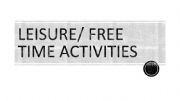
Free time Activities
Level: intermediate
Age: 10-16
Format: PowerPoint

present perfect or past simple - grammar guides_115105
present-perfect-or-p ast-simple-grammar-g uides
present-perfe ct-or-past-simple-gr ammar-guides
presen t-perfect-or-past-si mple-grammar-guides
present-perfect-or- past-simple-grammar- guides
Level: elementary
Age: 12-100
Format: PowerPoint

Making inferences
Literacy intervention. After moving from literal comprehension, students are working on inferential meaning within our literacy intervention session for EAL
Level: intermediate
Age: 9-14
Format: PowerPoint
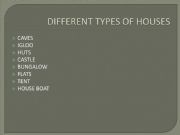
TYPES OF HOUSE
DIFFERENT TYPES OF HOUSES OR BUILDINGS
Level: elementary
Age: 3-100
Format: PowerPoint
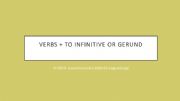
Verbs followed by infinitive or gerund.
Explanation of the verbs followed by infinities or gerunds and links to exercises.
Level: intermediate
Age: 14-17
Format: PowerPoint

Bored or boring?
1. Read the presentation
2. Complete tasks
3. Bingo!
Level: intermediate
Age: 16-100
Format: PowerPoint
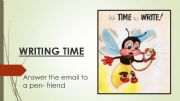
Writing time
You can use this activity as a prompt so your students can change the activities in red and use the activities they have learnt before in class.
Level: elementary
Age: 10-14
Format: PowerPoint
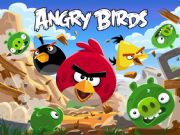
some/any
a funny game for Ss to practice some/ any in a sentence
Level: elementary
Age: 6-100
Format: PowerPoint
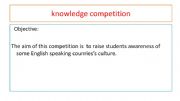
knowledge competition
Level: intermediate
Age: 6-14
Format: PowerPoint
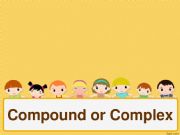
Compound or Complex?
Identifying a Compound Sentence vs a Complex Sentence, Use of coordinating and subordinating conjunctions
Indepe ndent vs Dependent Clause
Coordinating conjunctions vs Subordinating conjunctions
Level: elementary
Age: 5-14
Format: PowerPoint
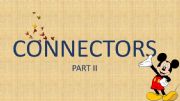
Connectors (part II)
This is Part 2 of connectors where you will find the explanation of or, because, so
Level: elementary
Age: 7-100
Format: PowerPoint
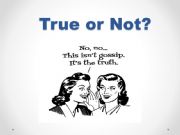
True or Not
The True or Not (False) game is incredibly simple and enjoyable at the same time. You can use this game both in you real and virtual classes. My students are fond of these type of games, so I prepared this game for them. I hope, you and your students will like it, too! Have fun! :)
Level: intermediate
Age: 7-100
Format: PowerPoint

Gerund or infinitive. Rule and practice
Rule and practice. Sentences to complete. Pre intermediate level
Level: intermediate
Age: 13-100
Format: PowerPoint
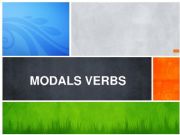
Modals - MUST - HAVE TO - SHOULD
This presentation can be used to introduce the use of modals.
Level: elementary
Age: 8-100
Format: PowerPoint
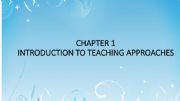
Chapter 1. Introduction to teaching approaches: Grammar translation & Direct methods
Introduction to ELT methodology
Level: advanced
Age: 18-100
Format: PowerPoint
|
|